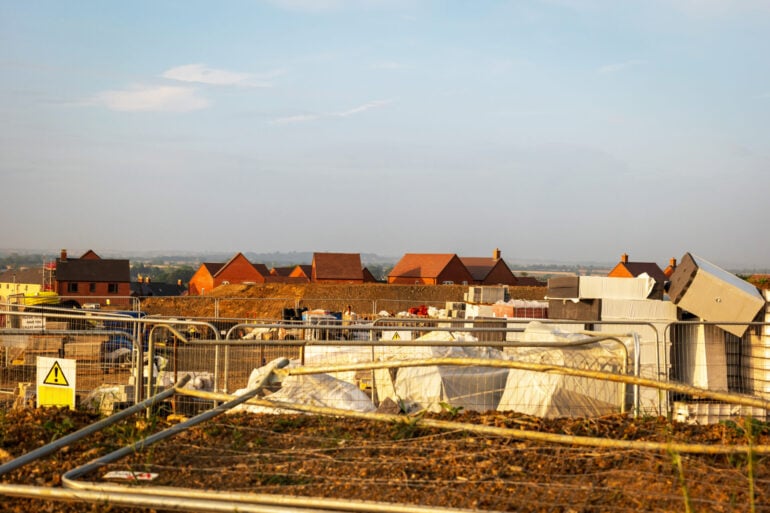Biodiversity Net Gain (BNG) policies could play a decisive role in easing opposition to housebuilding, according to new polling from biodiversity tech firm Joe’s Blooms. As the Government targets the delivery of 1.5 million homes over the next five years, the data suggests environmental considerations could help shift public sentiment — even among those most likely to oppose new developments.
A 14,000-person survey found that 75% of the public believe all new housing schemes — whether large or small — should improve the natural environment, for instance by creating green spaces or habitat banks. That figure climbs to 84% among those who oppose the Government’s housebuilding targets, with Joe’s Blooms identifying this group as a key NIMBY audience.
The poll, released to mark the one-year anniversary of BNG rules being applied to smaller developments, also reveals strong public preference for delivering biodiversity improvements locally. While BNG allows developers to offset habitat losses off-site, 36% of respondents said they want green space created in the local area. That figure rises to 38% among those opposed to housing targets, and 40% among people against new homes being built near them. Support reaches 43% among affluent rural residents — a demographic often regarded as the most organised and vocal NIMBY group.
Environmental impact is a leading reason for local opposition to housebuilding. Nearly half (49%) of self-declared NIMBYs cite the loss of green space or environmental damage as key concerns, ranking just behind pressure on local services (57%) and traffic congestion (54%).
The findings suggest that clearly integrating local nature recovery into housing development could help address environmental objections and shift public attitudes. Under current BNG rules, developers are required to deliver at least a 10% biodiversity improvement in connection with planning permission.
Oliver Lewis, CEO of Joe’s Blooms, said: “The data is clear: BNG isn’t just beneficial for nature – it’s essential for gaining public support for new housing developments. Nearly half of NIMBYs cite environmental concerns as a major reason for resistance. At the same time, support for nature recovery is growing among those most opposed to housebuilding.”
He added: “To achieve its ambitious housebuilding revolution, the Government must place BNG at the heart of its strategy. Following recent planning reform announcements, a clear roadmap is needed to show how BNG integrates into the planning framework — ensuring momentum isn’t lost. By embedding nature recovery into housing policy, development can drive biodiversity gains, win local backing, and deliver benefits for both people and the planet.”




